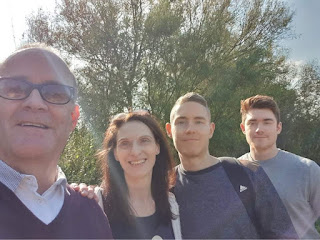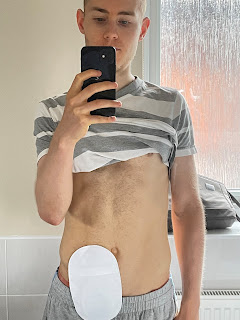Loved Ones Suffer Too
When we talk about eating disorders, most of the time the attention is solely focused on the sufferer, the one with the eating disorder, the debilitating symptoms, the physical, emotional, social and financial damage that it can cause the individual who is struggling.
As a sufferer myself, I have seen this first hand, and it's always made me feel a bit uneasy, because I see this as only half of the true story. The other half is my family.
I have seen 14 years of my parents, my brother, everyone I love and who loves me, suffering too - but barely getting a mention other than to look for a "cause" to my eating disorder. My parents have had to face guilt and feeling like they could have done something differently to prevent my suffering, they've had to face stigma from other parents, from wider society, and even from eating disorders services. They have had to face 14 years of seeing their son struggling... I cannot imagine how hard that must be.
My brother has suffered too. He has had to grow up with someone who has been unwell for most of the life we can both remember. He is the one who found me passed out at Uni, he is the one who - so many times - I said I would never get to a point where I was critically unwell, only to see it happening. No one (other than my parents) ever asked how it affected him, if he needed any support.
This lack of support for loved ones creates so many issues.
- Recovery: If loved ones don't get support, how do they know what to do? My parents have been amazing, but they can only do what they are able to with the knowledge and skills they have. I am lucky to have parents who are open, inclusive and listen to me unconditionally. Not everyone may have that, and some sufferers may face stigma from loved ones - not because they don't care, but because of a lack of knowledge.
- Guilt: This goes both ways. My loved ones feel guilt because they feel they "failed" me, and I feel guilt that I have caused them to feel that way by being unwell. There should be no guilt attached, it is an illness and neither of us should feel this way, but a lack of support and guidance can create that... compounded by a lack of sufferer support meaning that their illness will likely be prolonged, chronic and sadly for too many - lifelong.
- Financial Support: I couldn't work for 3 years when Ieft Uni, my parents had to support me financially as well as emotionally. I am so lucky that they could at the time, not everyone is lucky enough to be in that position... but there is no support out there.
- Relationships: No matter what anyone says, the dynamics of the relationships will change. This isn't always a bad thing - actually I would say it has brought us as a family closer together, however this isn't the case for everyone. If loved ones don't get support, it could create a divide, a rift, or even worse: something that could be an amazing support network could end up being a network of suffering, where everyone is struggling.


Wow, a real eye opener and very interesting and valid points. I can also see this being the case with other illnesses such as dementia, alzheimers, MND, MS, myesthenia, lupus. Educating loved ones so they can support the sufferer must surely take away some of their anxieties and stress by doing this?
ReplyDeleteI love you and Mark so much. So proud of you both and so glad you're coming home, where you belong, so we can support eachother as the family unit we have been and always will be. So proud of you. Whatever it takes we will do, unconditionally and with an abundance of unconditional love, as always, from the heart. ♥︎
ReplyDeleteSaw your tweet this morning had to send a message especially as loved ones we see the daily challenges our daughter faces with her ongoing Anorexia recovery yet as parents we are never considered by those professionals who like to dictate and completely miss us our feelings etc
ReplyDelete